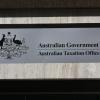Tax loopholes are 'stealing from next generation'
Tax loopholes that benefit multinational companies in Australia are “stealing from the next generation”, prominent unions have warned. The Community and Public Sector Union told a parliamentary inquiry into multinational tax avoidance that many companies advising governments on various policies had been exploiting loopholes. The union’s joint national secretary Karen Batt said a dangerous cycle was playing out in government policy-making due to the current tax loopholes.
“Australians still expect or need services or assistance, forcing governments to turn to the very organisations who benefit most from the current loopholes to fill the staffing and advisory gaps,” she said on Tuesday.
“It is effectively stealing from the next generation of Australians.
“By turning to the various organisations that don’t pay tax or the multinational consultancies, labour hire firms to advise and deliver on their election promises as the local employment bases hollowed out, governments complete a vicious circle.”
The inquiry is examining new laws that would require publicly listed companies to disclose information about their subsidiaries in their annual reports.
Companies would be required to list the tax residency of each of their entities, along with their status.
While some companies already disclose information on their subsidiaries, the laws would make it mandatory in a bid to increase transparency.
Ms Batt said loopholes used by companies to avoid tax were “hollowing out” the capabilities of governments.
“Increased corporate tax transparency is integral to restoring and maintaining broader community trust in the tax system,” she said.
“It’s deeply unfair when essential workers pay a higher rate of tax on their personal income than some of the world’s largest and most profitable multinational corporations.”
ACTU assistant secretary Joseph Mitchell welcomed the new laws.
“(The disclosure statement) is a modest but important step in making sure that companies are transparent in how they structure their subsidiaries,” he said.
“We see in Australia that companies that managed to pay a fair share of tax do end up treating their workers better.
“This sort of measure to encourage transparency will allow workers to more adequately assess whether or not there is room to bargain effectively.”
michaelwest.com.au

